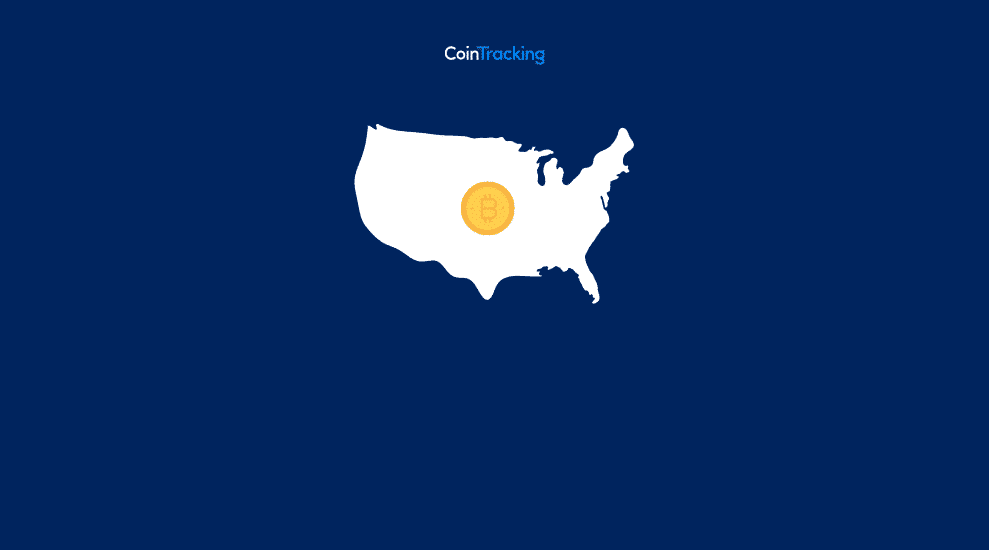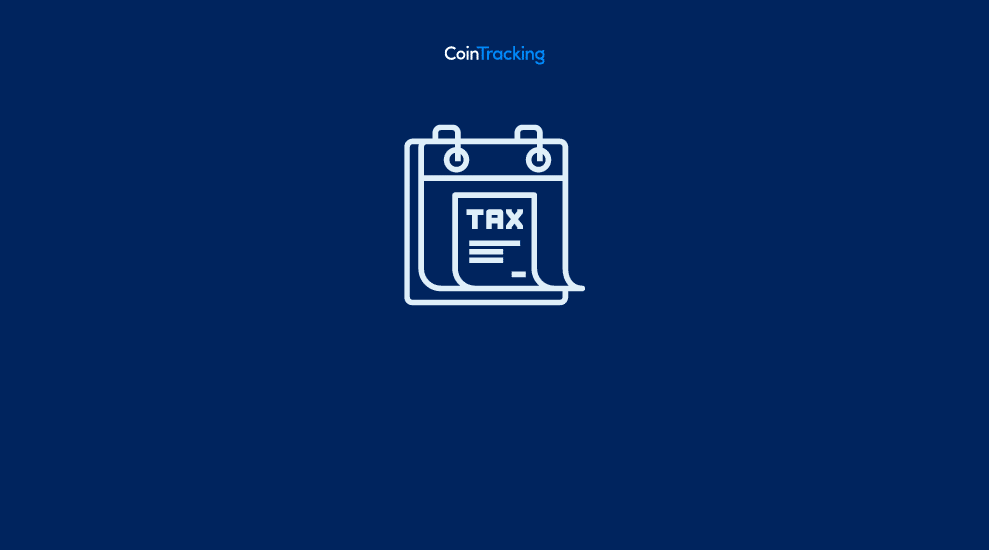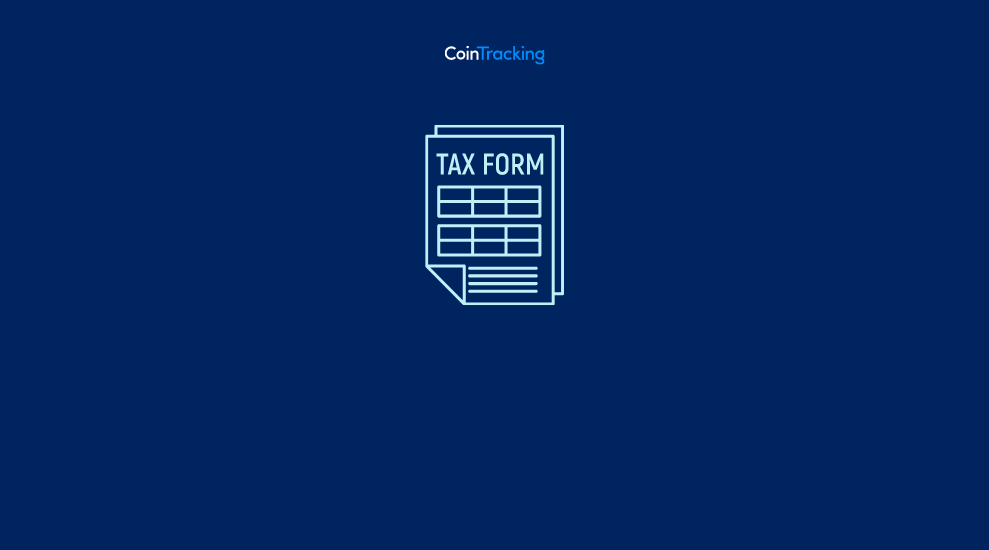Do you have to report crypto on taxes if you don’t sell? [2024]
16 Jan, 2024 · 19 min read
Is there a need to report crypto on taxes that you don’t sell? Many crypto investors wonder about their crypto reporting obligations when they don’t sell any of their crypto holdings.
However, in the US, there are some crypto taxable events you need to know about, even if you don’t sell any of your crypto holdings. Let’s look into those taxable events and how you should report crypto on taxes if you don’t sell it.
Crypto taxes in the US
Crypto taxes in the US could fall under two categories: 1) capital gains taxes; and 2) income taxes.
If you trade any crypto or NFTs for other cryptocurrencies, NFTs, or FIAT (e.g., USD), you’d have a taxable event, subject to capital gains taxes.
If you earn any new coins from transactions like crypto airdrops, hard forks, crypto interest products, salaries, staking rewards, and crypto mining rewards, you’d have an event subject to income taxes.
Capital gains from crypto trading need to be reported on Form 8949 and Schedule D, while crypto income needs to be reported in your income tax return (Form 1040).
Do you pay taxes on crypto if you don’t sell?
If you buy crypto with FIAT currency and don’t sell it, you don’t need to pay taxes on it. However, you’ll notice that on Form 1040, you have the popular ”crypto question.”
In the latest clarification by the IRS, if you only buy crypto with FIAT and do nothing with it (e.g., sell it, gift it, generate more crypto income, don’t do any crypto trading, etc.), you can answer “No” to the question. That will be the only crypto tax reporting obligation you’ll have until you actually sell your crypto.
Do you pay taxes on crypto you received but don’t sell?
Yes, there are several scenarios where you receive income as cryptocurrency, which needs to be reported even if you don’t sell it.
For example, if you receive crypto from earning interest, staking rewards, an airdrop, or a salary, you need to report that income, even if you don’t sell the coins you received. Why?
Because these operations are taxed differently than crypto trades. When you trade crypto – for FIAT or another crypto – you are taxed at the capital gains level, while other operations are taxed at the ordinary income level.
Let’s check it case by case.
Do you have to pay taxes if you receive an airdrop but don’t sell?
If you received a crypto airdrop, you would have to report it at the time you receive the airdrop according to its Fair Market Value (in USD). Even if you only receive an airdrop and don’t sell it, you still need to declare its FMV as ordinary income for that tax year.
Learn more about the tax implications of receiving crypto airdrops.
Do you have to pay taxes if you receive coins from a hard fork but don’t sell?
When you receive new coins from a hard fork, you need to determine their Fair Market Value (in USD) at the time you receive the coins and report it as ordinary income. This can be complex if there are no market prices for the new coins. Check this tax guide to learn how to report hard forks.
Do you have to pay taxes if you receive staking rewards but don’t sell?
Receiving crypto staking rewards is a taxable event subject to ordinary income taxes. You need to determine the Fair Market Value (in USD) each time you receive staking rewards. All the batches need to be reported for the tax year.
Learn the tax implications of receiving staking rewards. If you use more complex earning vehicles like rebase protocols, check this tax guide to learn more.
If you receive crypto interest from other vehicles, you have to follow the same procedure: determine its FMV when you receive the interest and declare it as ordinary income.
Do you have to pay taxes if you receive crypto as your salary but don’t sell it?
If you receive your salary in crypto, you need to declare it as ordinary income, even if you don’t convert the crypto to FIAT (e.g., USD). This is the same reporting obligation as receiving your regular salary in dollars.
Discover all the tax implications of receiving crypto as compensation, whether as an employee or freelancer.
Do you have to declare cryptocurrency profits?
When you sell cryptocurrency that you bought at a profit, you need to report that gain and pay the appropriate capital gains tax rate based on your holding period.
Let’s imagine the following scenario:
In January 2021, you bought one Bitcoin at $30K. On April 2021, one Bitcoin was worth $50K, and you decided to sell. Your capital gain is the difference between the sales proceeds ($50K) and the cost basis ($30K). Since you’re selling your Bitcoin before holding for more than 12 months, you’ll face a short-term capital gains tax scenario, with a tax rate ranging from 10% to 37%, depending on your personal situation (e.g., filing status, etc.).
Crypto-tax free events
You don’t have to pay crypto taxes on the following operations:
- Buying cryptocurrency with FIAT and not selling it
- Moving your crypto between personal wallets or exchanges
- Receiving a gift in crypto
- Donating crypto to a charity
- Stolen/hacked/rugged crypto
- Receiving qualified income or generating capital gains in a tax-deferred or tax-free retirement account that you are using to invest in crypto
Do you have to report crypto to the IRS?
In the US, you have some reporting requirements to follow when you engage with crypto, from trading it to earning income.
Everyone in the US filing their income tax return will have to answer the crypto question on Form 1040. The latest version of the question was the following:
“At any time during 2023, did you: (a) receive (as a reward, award, or payment for property or services); or (b) sell, exchange, or otherwise dispose of a digital asset (or a financial interest in a digital asset)?”
If you engage in crypto trading, there are more tax forms and requirements, including reporting your gains on Form 8949 and Schedule D. Whereas, if you have crypto income, you have to report that income on Form 1040.
Let’s see the crypto operations you need to report and which taxes are due in each case:
- Selling crypto for USD: Capital gains taxes
- Trading crypto for another cryptocurrency: Capital gains taxes
- Trading a cryptocurrency like ETH for a stablecoin: Capital gains taxes
- Earning interest in crypto: Ordinary income taxes
- Receiving a crypto airdrop: Ordinary income taxes
- Receiving crypto staking rewards: Ordinary income taxes
- Earning a salary in crypto: Ordinary income taxes
- Receiving new coins from a hard fork: Ordinary income taxes
- Receiving crypto as a bonus reward, referral fees, tips: Ordinary income taxes
What happens if I don’t report crypto on taxes?
If you don’t report crypto on taxes, you’ll likely end up with fines, interest, or even be charged with a criminal offense. Recently, many traders in the US, using exchanges like Coinbase, received letters from the IRS with huge amounts of taxes due to not reporting them for years.
How to report NFTs on taxes?
NFTs are taxed similarly to crypto in the US, with the need to report gains/losses from NFT trading and reporting income from NFT sales as a creator.
In the US, for every NFT trade, including for others NFTs, cryptocurrencies, or FIAT (e.g., USD), you’d need to determine the gain/loss and report it, alongside your other gains/losses, on Form 8949 and Schedule D.
However, if you’re an NFT creator and sell your NFTs, you’d need to report the sales proceeds as income and pay the appropriate income taxes according to your tax bracket.
How to calculate crypto taxes
When you engage in crypto trading, you need to determine the gains/losses on the trade. Let’s look at an example of how to calculate crypto taxes:
Imagine that John bought 1 Bitcoin (BTC) in November 2020 at $18K. In April 2022, he decided to sell his Bitcoin. At the time, 1 Bitcoin was worth $40K.
John’s gain in the trade was $22K ($40K-$18K), taxed at a long-term capital gains tax rate since he held it for over 12 months before selling. The long-term capital gains tax ranges from 0% to 20%, depending on John’s personal situation (e.g., filing status).
If John had held his Bitcoin for less than 12 months before selling it, he would have been taxed at a short-term capital gains tax rate, ranging from 10% to 37%.
FAQ about taxes in the us
on unsold crypto
Conclusion
Crypto has several reporting requirements you need to follow to be tax-compliant in the US.
For example, everyone filing their income tax return needs to answer the crypto question on Form 1040, while if you engage in crypto trading, you’d need to report your crypto gains/losses. At the same time, you need to report any crypto income in your income tax return.
Fortunately, crypto tax software like CoinTracking can help you track all the gains/losses from crypto trading and income while enabling you to generate the necessary tax reports to do your crypto taxes.
Disclaimer: All the information provided above is for informational purposes only and should not be considered as professional investment, legal, or tax advice. You should conduct your own research or consult with a professional financial advisor when investing.
Share this









